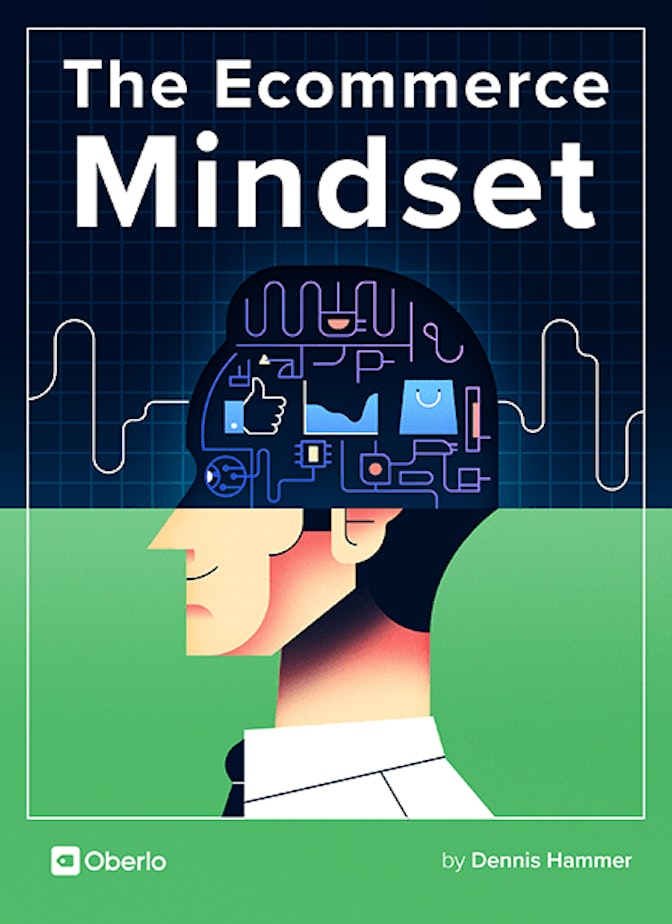“I don’t have enough time.”
“I’m not young enough to start.”
“I don’t have enough money for that.”
“I’m not smart enough to do that.”
“I don’t have the right connections.”
We use excuses like these all the time when we underperform or fail to achieve our goals. It’s easy to blame a resource for our failures, like a lack of time, intelligence, confidence, or focus.
The biggest resource entrepreneurs claim to lack is money.
According to Gallup, 84% of potential entrepreneurs never start a business because they like the security of a steady income. Moreover, 68% say they don’t have enough personal savings to start.
How many business ideas or opportunities have you passed over because you didn’t have the money to get started? How many have you abandoned because they would’ve required you to take on piles of debt or wait years to turn a profit?
Money is without a doubt a legitimate concern (which is probably why you find the low-cost investment of ecommerce so attractive), but it’s just a resource–not a dead end.
In a perfect world, you’d have all the resources you need to run a killer store. There would be plenty of time in the day, spare cash to burn, access to every software tool you could possibly dream of, and all the smarts/confidence/drive/whatever to launch yourself into success.
But you don’t have all the resources you need.
You’ll probably never have all the resources you need. You have to make your own resources.
That’s call resourcefulness, and it’s the single most important entrepreneurial skill you can possess.
Jeff Bezos, founder of Amazon (and the king of ecommerce if there ever was one), credits resourcefulness as the key trait that turned his dream into a reality.
“As a lot of entrepreneurs know, the whole point of moving things forward is you run into problems, you run into failures, things don’t work,” says Bezos. “You have to back up and try again. Each one of those times you have a setback and you back up and try again, you’re using resourcefulness, you’re using self-reliance. You’re trying to invent your way out of a box.”
Resourcefulness is your ability to find answers to your questions and overcome challenges. It’s the one skill that begets all other skills; the talent that ignites all other talents. If you only develop one piece of your entrepreneurial toolkit, it should be resourcefulness.
As you build and manage your ecommerce store, you’ll deal with a million challenges. You’ll face obstacles every day. You’ll find yourself standing before problems you never imagined an ecommerce store owner would have to deal with.
And yet, time after time, new entrepreneurs abandon or delay their ecommerce dreams because they lack a resource that seems critical to their success.
When they hit a wall, they assume it’s only some unobtainable resource that can help get them through.
Steve Chou and his wife built a six-figure ecommerce store in a single year. Now he teaches other entrepreneurs how to run their own stores. He says what defines a successful entrepreneur from a failing entrepreneur is how they respond when things don’t go as planned. “Failing entrepreneurs feel helpless, make excuses and play the victim card.”
The true skill of an entrepreneur is not what you know. It’s not your network of well-connected people, your past experience, or even your common sense.
The true skill of an entrepreneur is your resourcefulness: Your ability to solve problems.
It’s how you methodically knock down walls until the path before you is clear. It’s how you use whatever you have at your means to make your own tools and overcome your obstacles.
Mark Watney, the protagonist of The Martian, says something interesting at the end of the novel (after returning to Earth) that all entrepreneurs should remember:
You solve one problem and you solve the next one, and then the next. And if you solve enough problems, you get to come home.
Now, obviously the character alludes to his survival on a hostile planet and his journey home, but the sentiment is important: Getting what you want is all about solving problems, until there aren’t any problems left to solve.
Fortunately, your problems are more terrestrial than Mark Watney’s. You can solve any ecommerce entrepreneurial challenge from the comfort of your own sofa with your laptop.



How to Become a More Resourceful Entrepreneur
Although resourcefulness is always essential, it’s of particular importance at the beginning of your ecommerce journey.
You don’t have the finances to outsource your web design, digital marketing, paid advertising, social media, PR, email marketing, and so on. You have to wear all the hats.
→ Click Here to Launch Your Online Business with Shopify
But this doesn’t mean you should stop being resourceful once your business becomes successful. It’s a skill that’s always useful.
“Resourcefulness is not a means of coping with deprivation,” says business coach John Baldoni. “It can be a virtue that opens the door to greater accomplishment.”
Take Bill McBean’s story, for instance.
In the 90’s, Bill had the chance to buy another business, one that would make him the biggest player in his market–except he didn’t have the cash on hand. So, instead of borrowing or turning away from the deal, he renegotiated his banking fees to free enough cash to buy the other company. His resourcefulness grew his company without incurring any debt.
Resourcefulness is an important skill, but it’s a skill just like any other.
In other words, if yours is missing or anemic, you can develop it. Let’s talk about some of the ways you can become a more resourceful ecommerce entrepreneur.
1. Accept That You Don’t Know Everything
It’s tough to hear, but you don’t know everything.
If you find something confusing or difficult, it’s not because the world has conspired against you or because you’ve been treated unfairly. It’s just because you haven’t learned it yet. Before you can find the solution to a problem, you must first acknowledge your ignorance.
Ignorance, however, is not a flaw. We’re all ignorant about many things. Ignorance is an opportunity to make yourself stronger, faster, and smarter.
2. Lean on Other People
Being resourceful doesn’t mean you have to work alone.
Find solutions to problems any way you can, even if it means consulting others. This is especially important if you hire an assistant or a freelancer. If you’re paying them, you may as well use them as much as possible.
Don’t be afraid to speak up when you have a problem. Tell everyone you meet, even if you don’t think they could help. Don’t complain about your “bad luck” or “misfortune,” but let them know you’re struggling with something and you’d like their input. You never know where a good idea can come from and where they might lead you.
Sometimes, finding a solution means spending money. For instance, if you need special Terms & Conditions copy, you should speak with an ecommerce attorney. But if you’re struggling with a unique tax situation, you need to speak to an accountant. And if you need to learn a skill, you can always buy and complete an online ecommerce course.
3. Join Communities of Other Store Owners
Many ecommerce entrepreneurs deal with the same problems you’re facing. Solving a problem is often as simple as reaching out to someone who’s been there before. Join a few or all of the communities listed here. Engage with other ecommerce entrepreneurs regularly (before you ask for help) to build a rapport.
- Ecommerce Fuel Forum
- The Shopify Ecommerce University Forum
- Digital Point Ecommerce Forum
- Shopify Entrepreneurs
- The Reddit Ecommerce Section
- Ask.Oberlo
4. Optimize What You Have
In the 80’s, an American TV show called MacGyver featured a superbly resourceful secret agent who could create bombs and other devices out of common household items like string, duct tape, and a tile cleaner. He dodged precarious situations and saved the day using only the stuff at his disposal and his resourcefulness.
As an ecommerce store owner, you have to be your own MacGyver. When there’s a challenge in front of you, ask yourself, “What tools do I already have that I can use to solve my problem?”
5. Solve Today’s Problem, Not Tomorrow’s
In an earlier section, we spoke about solving the problem in front of you, instead of worrying about the state of your business down the road. You’ll find your problems are smaller than they seem when you trim them down to the essential few.
Don’t build solutions for a million-dollar business. You’re not there yet. And you won’t be there for years to come.
Instead, focus on building solutions that solve the problems you’re already dealing with.
For instance, you don’t need a top-of-the-line email marketing tool today because you hope to have 100K subscribers tomorrow. That’s expensive and complex.
For now, run with some free tools to get your system running right away. (You can worry about your 100K subscribers when you have them.)



Turn Resourcefulness Into a Mindset
As mentioned earlier, don’t reserve resourcefulness for the early days of your ecommerce journey or for when money’s tight. The most successful people in the world use their resourcefulness on a daily basis, even when they have thousands of employees to do the work for them and billions of dollars to spend. Make resourcefulness (especially relying on your own resources) a part of your daily mindset, so you’re always doing more with less.


